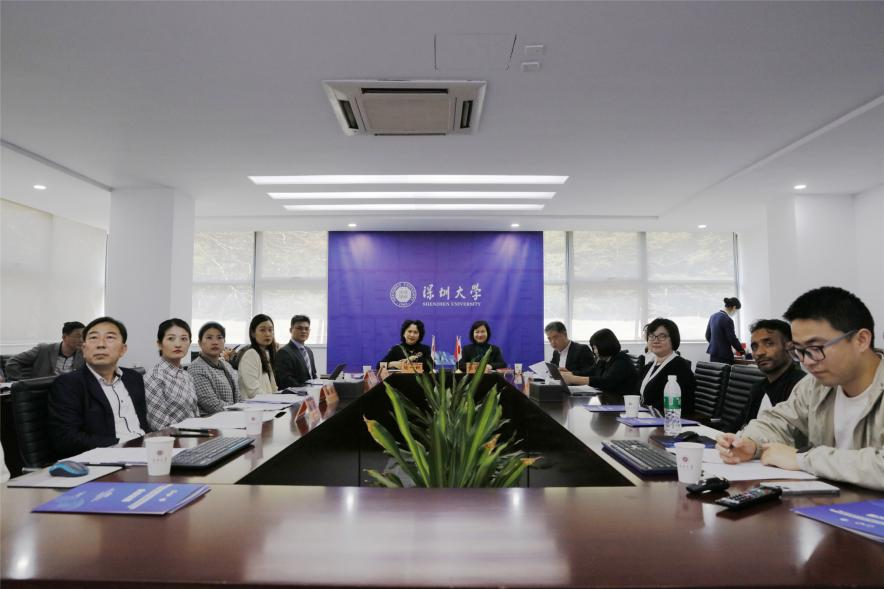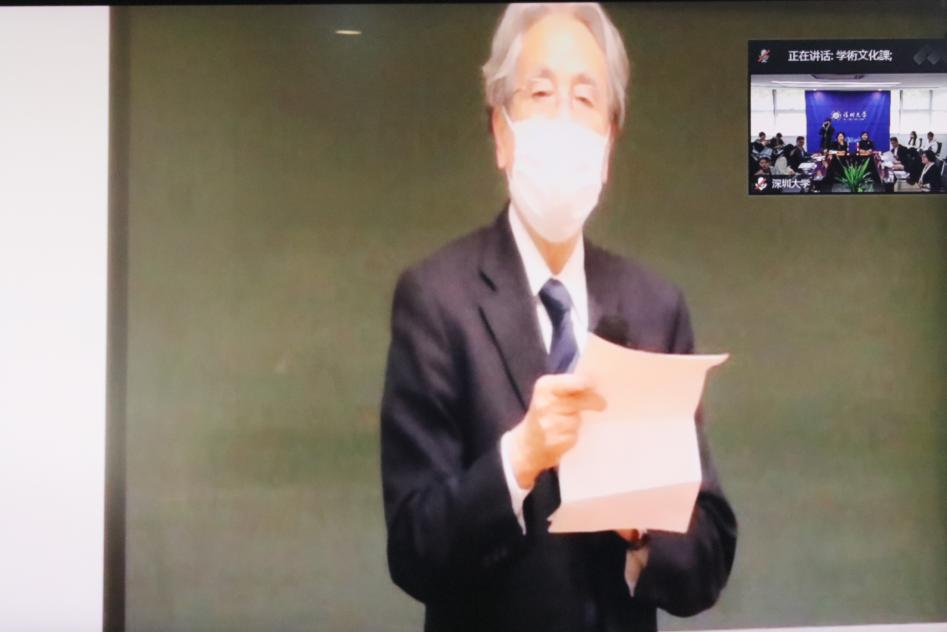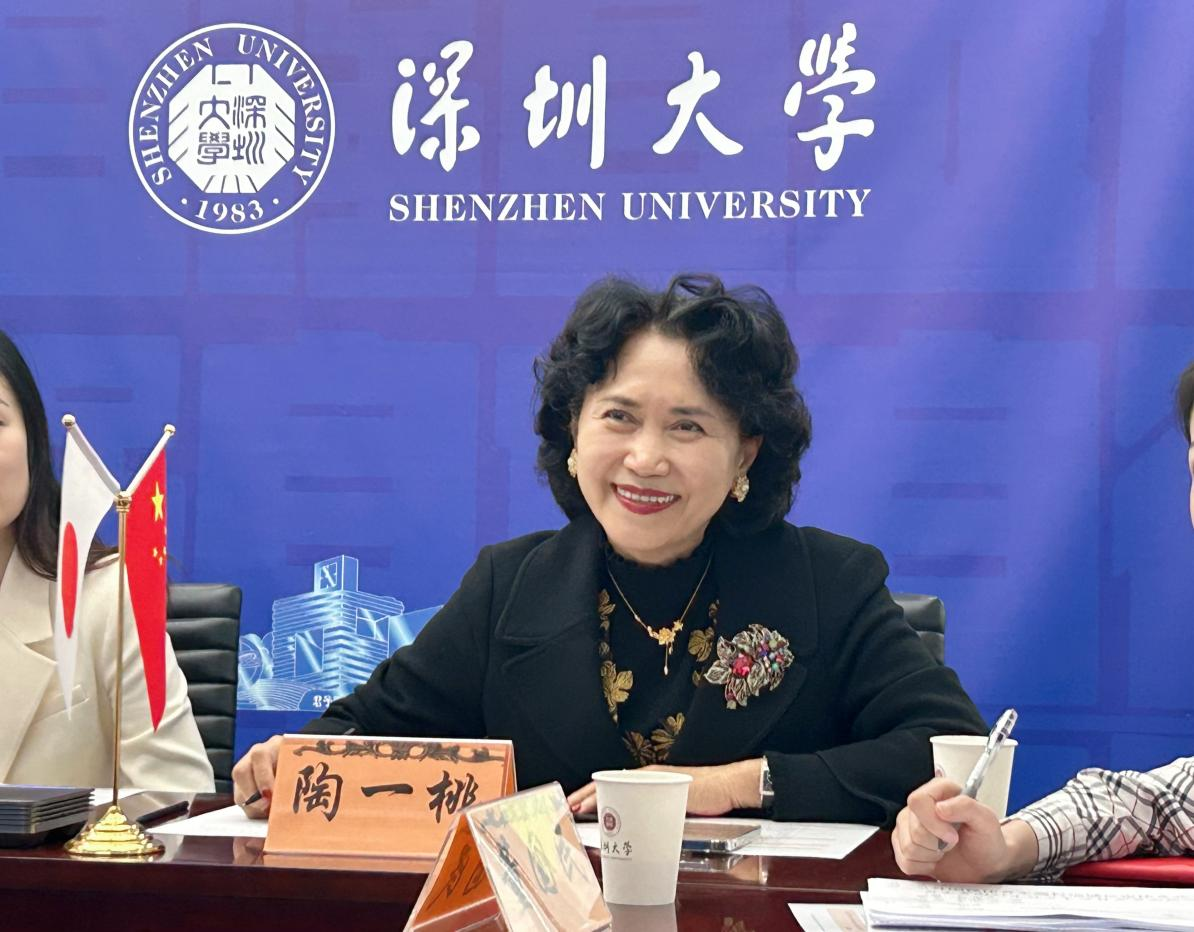On March 6, 2023, the “Inter-regional Flow of Economic Factors and Social Development in East Asian Countries — Conference Commemorating the 80th Anniversary of Kumamoto Gakuen University”, jointly sponsored by CCSEZR and IAF, KGU was held successfully both online and offline. Scholars from SZU, KGU and Chonnam National University (CNU) attended the conference and made speeches.
“Inter-regional Flow of Economic Factors and Social Development in East Asian Countries — Conference Commemorating the 80th Anniversary of Kumamoto Gakuen University” — Shenzhen Venue
President of KUG Hosoe Moriki and Vice President of SZU Zhang Xiaohong made the opening address. President Hosoe Moriki proposed that the focus of this conference is “What’s the sustainable society in China, Japan and Korea: think of immigration, economy and the environment”. In the eastern Asia area, the speed of decline in the birth rate in China, Japan and Korea is faster than in other countries. However, the shrinking population will lead to an unsustainable society. It is hoped that this conference will shed useful light on this topic. Vice President Zhang stated that our consistent philosophy and aspirations lie in rational inclusive development, scientific exploration, mutual respect and common prosperity. We sincerely wished for fruitful accomplishments and a promising future through our academic exchanges and cooperation in between! Group photos of online and offline guests are taken at the end of the opening ceremony.
Hosoe Moriki, President of KUG
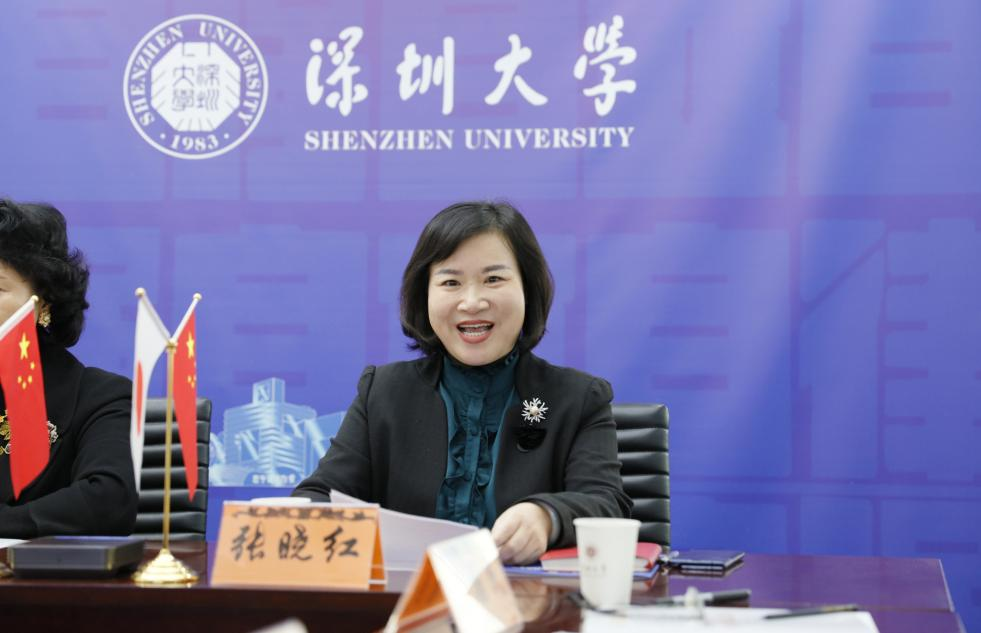
Zhang Xiaohong, Vice President of SZU
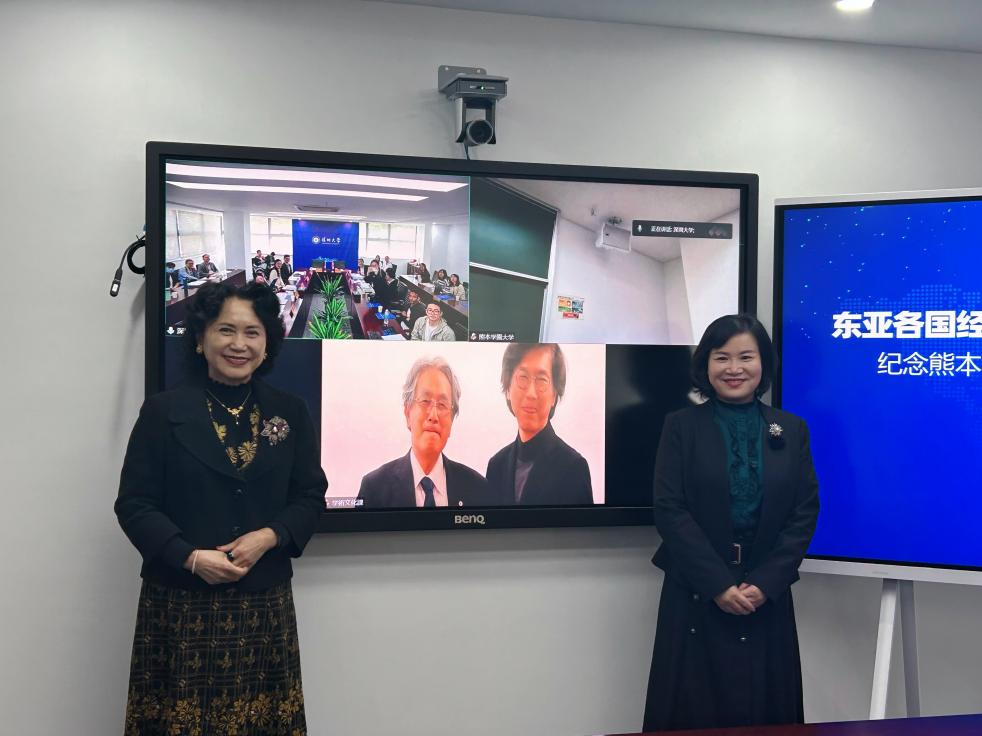
Group photo of leaders from SZU, KGU and CNU
The conference was divided into two parts, of which the first part was presided over by Prof. Li Shan, the Director of IFA, KGU. Prof Shioshumi, Department of English, School of Foreign Languages of KGU, introduced a survey on the acceptance of foreign-skilled interns in Kumamoto Prefecture. She believed that Japanese employers need to provide foreigners with “simple Japanese” training to improve their Japanese language ability and support them in learning Japanese outside the workplace through cooperation between employers and the participation of the local government. Prof. Kim Kyung-hak, Director of the Global Migration Research Institute of the Department of Cultural Anthropology of CNU, proposed to guarantee the basic right of "family reunification”, regarding the transnational family relationship of Nepalese migrant workers in South Korea. It is urgent for the Korean government to issue relative immigration policies, so as to help Nepalese migrant workers engage in safe and happy economic activities. Associate Professor David Osterman, Department of English, School of Foreign Languages of KGU, explained the way to attract foreign migrants to settle in rural areas by presenting Canada’s pilot program. Prof. Myoungjik Shin, School of Foreign Languages of KGU, by comparing with Japanese agricultural immigrants, introduced the status quo on agricultural immigrants and multi-cultural coexistence in South Korea. He advocated a Kumamoto model of local fair trade, which is based on environmentally friendly and multicultural agricultural products. On the improvement of the stability and integration of foreigners in Korea, Prof. Hyundai Park, Director of CRMI, College of Business of CNU, believed that for future Korean immigrants, conflicts in work and daily life should be reduced for a high-quality life; while for the integration programs, more qualified labor should be brought in to relieve the pressure of aging and increase global competitiveness.
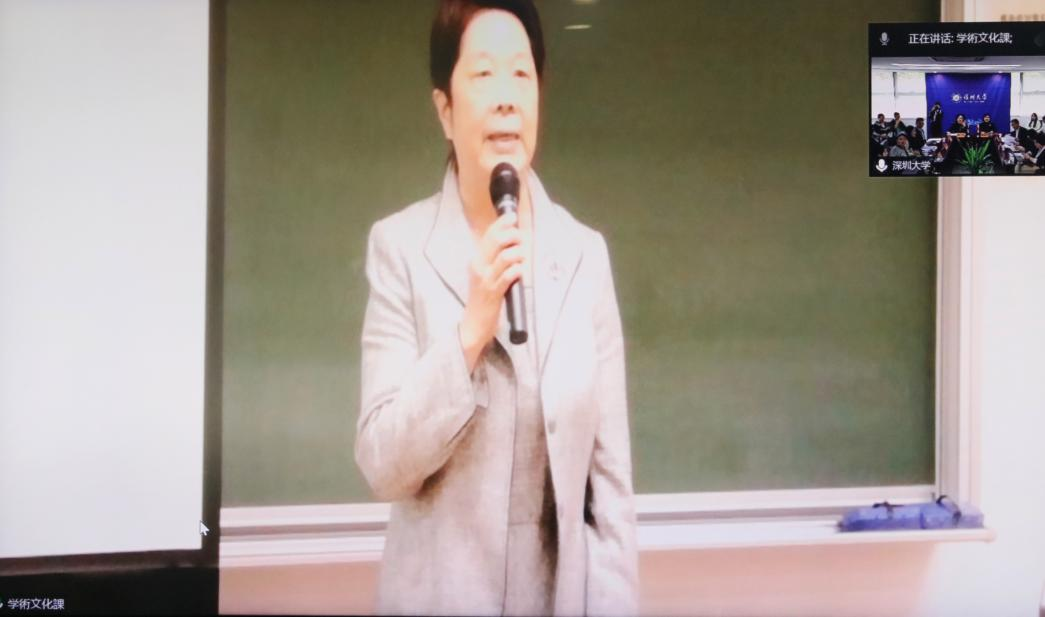
Li Shan, Director and Professor of IFA, KGU
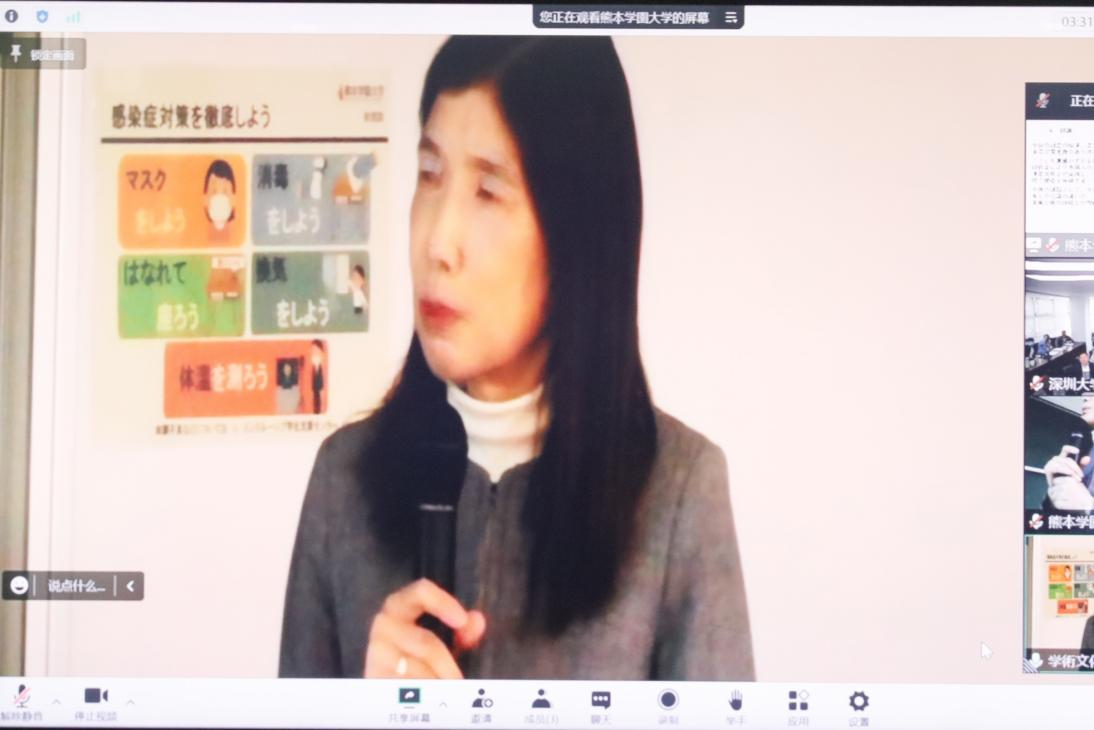
Prof. Shioshumi, Department of English, the School of Foreign Languages of KGU
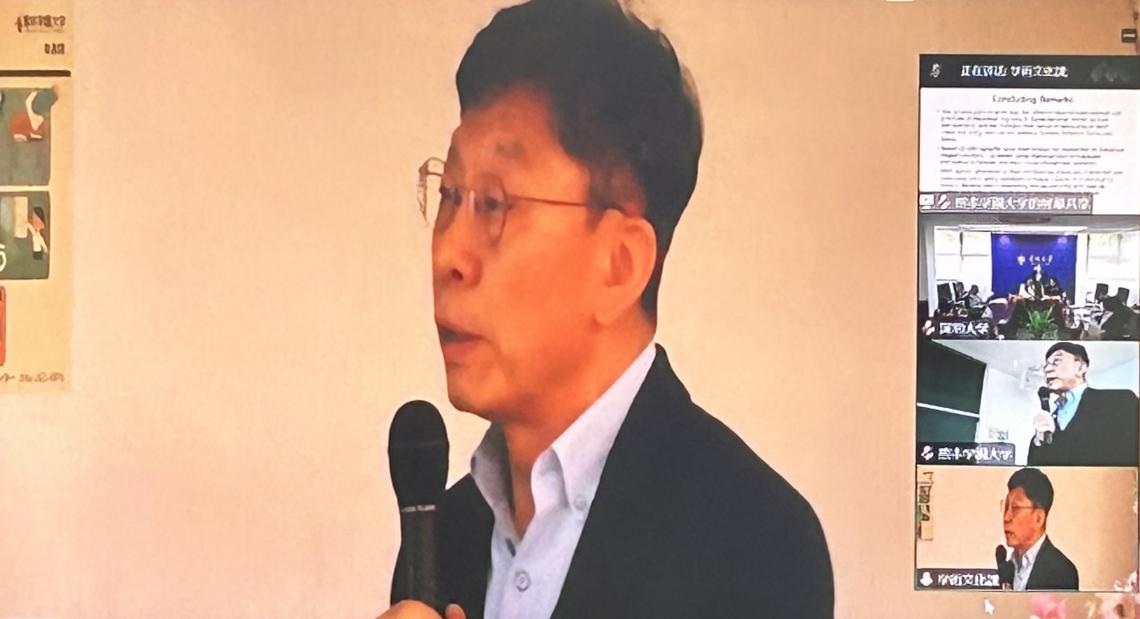
Prof. Kim Kyung-hak, Director of the Global Migration Research Institute of the Department of Cultural Anthropology of CNU
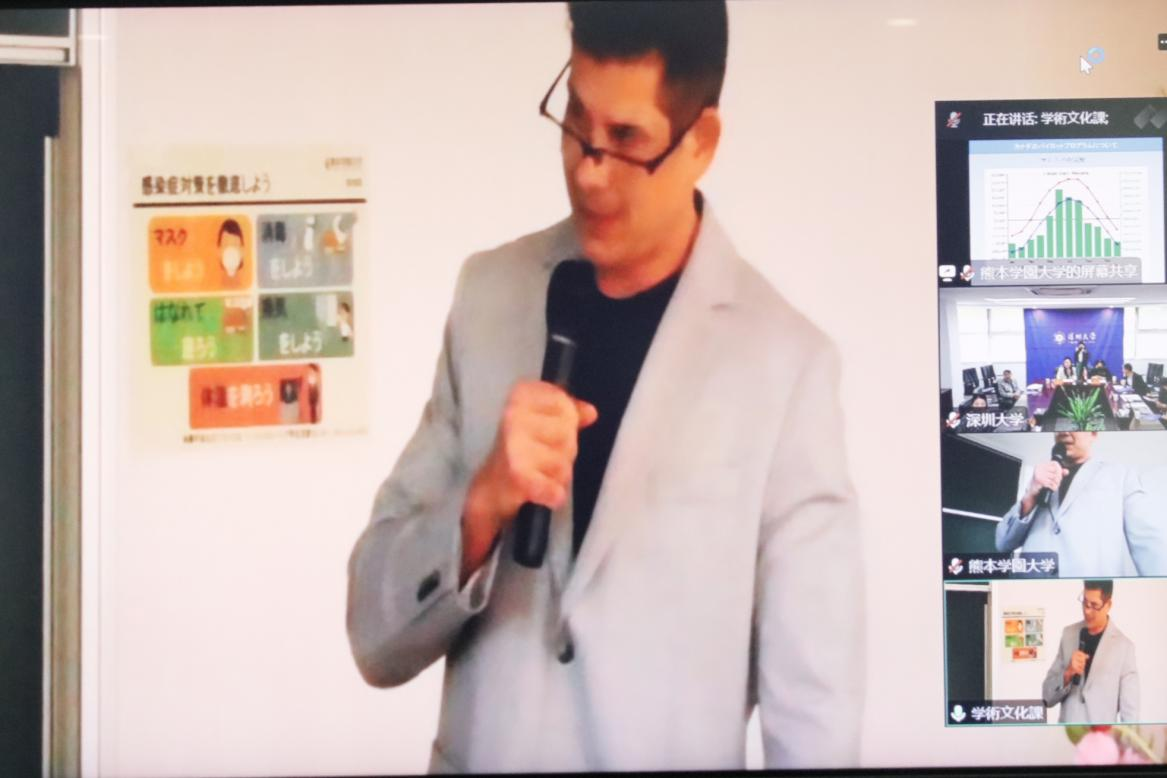
Associate Professor David Osterman, Department of English, School of Foreign Languages of KGU
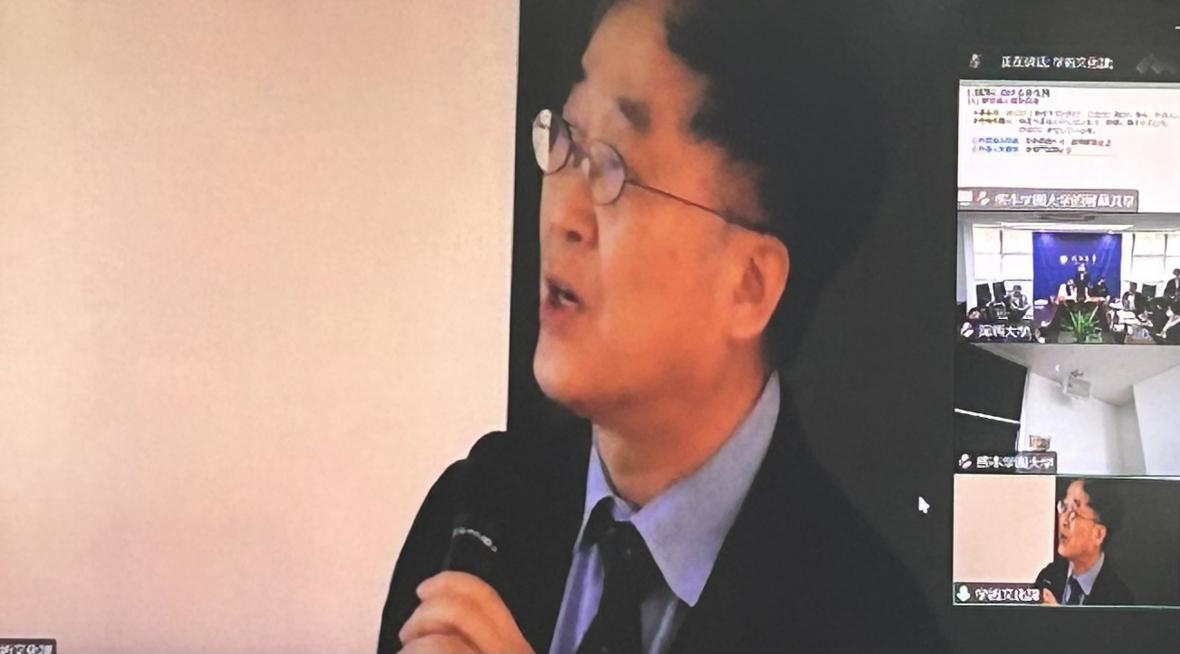
Prof. Myoungjik Shin, School of Foreign Languages of KGU
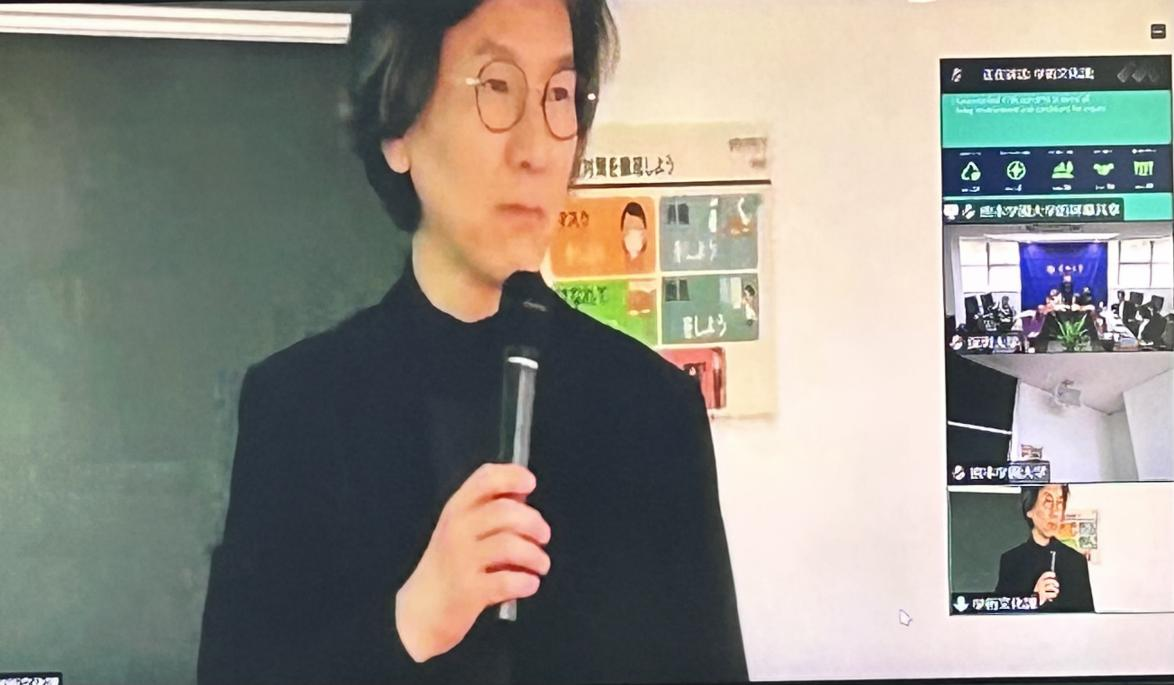
Prof. Hyundai Park, Director of CRMI, College of Business of CNU
Prof. Li Fan, Deputy Director of the CCSEZR hosted the second part of the meeting. Associate research fellow of CCSEZR Ma Limei shared Chinese renewable innovation in the context of carbon neutrality from the urban perspective. She thought urban renewable energy technology innovation in China showed a "high-high" ("low-low") spatial distribution pattern, which had a significant positive spatial correlation. Prof Lee Soo-yeol of CNU Business School elaborated on the opportunities and challenges for East Asian enterprises in the era of sustainability and ESG, stating that ESG is at the core of competitiveness in the business community. As for comparative national studies on ESG, especially in East Asian countries, more research collaboration is required. Prof. Liu Weili, upon the quality culture comparison of China and Japan, believed that quality can boost economic and social development, which creates new demands and anti-driving mechanisms for quality in return. Through the mutual learning of quality culture between China and Japan, the system of "Lifelong Education", the training of craftsmen apprenticeship, and the 100-year enterprises are formed and built. Prof. Li Fan, Deputy Director of CCSEZR, SZU, proposed that to achieve Chinese modernization, high-quality development of the digital economy should be fostered, including strengthening independent innovation of digital technology, sustainable development and outcomes sharing of the digital economy.
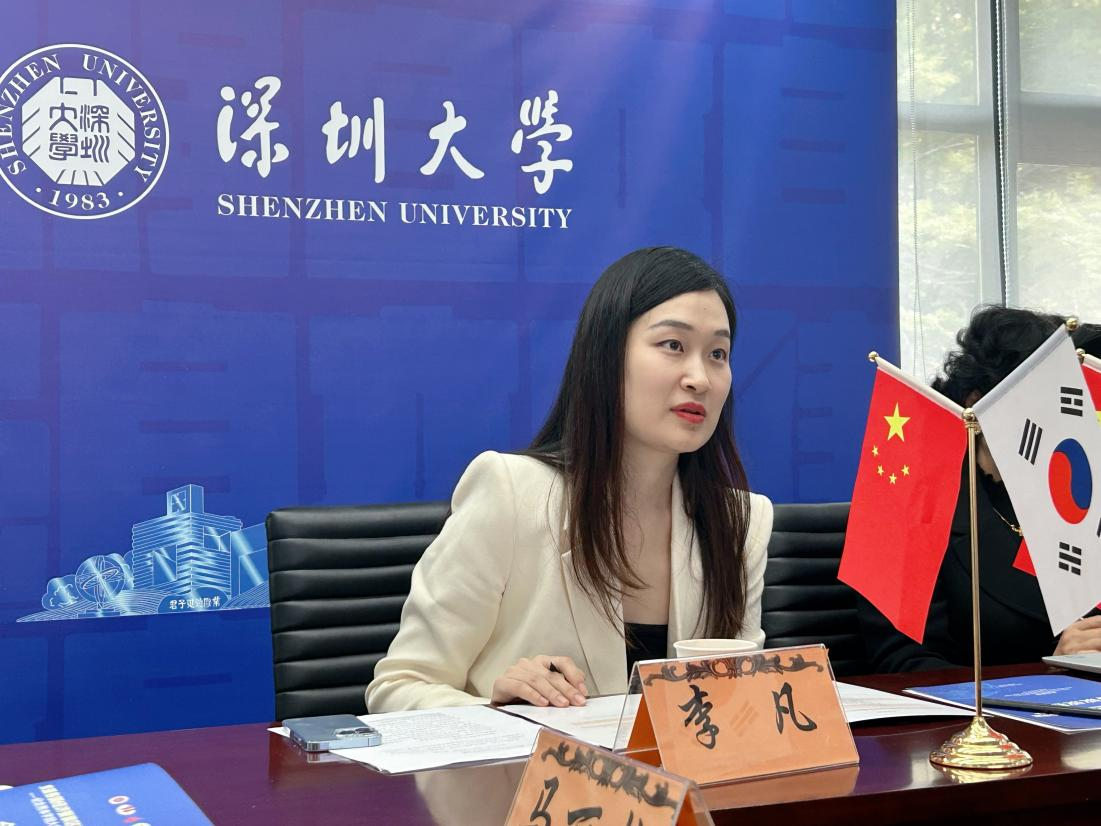
Prof. Li Fan, Deputy Director of CCSEZR, SZU
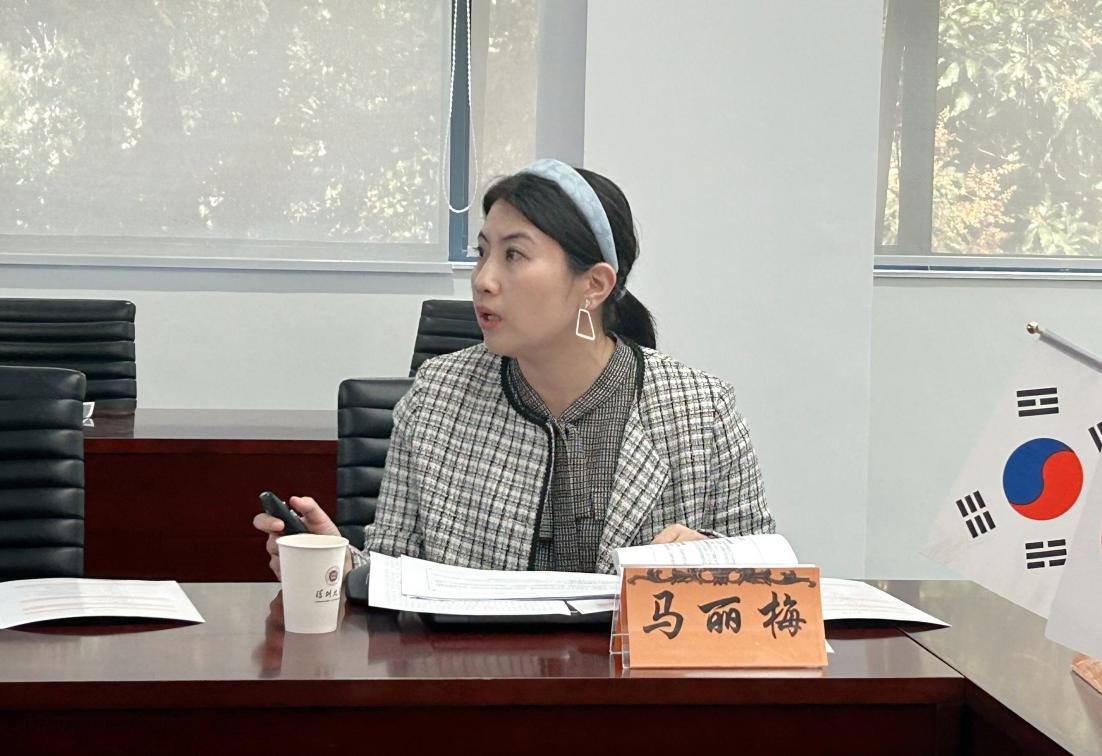
Ma Limei, Associate research fellow of CCSEZR, SZU
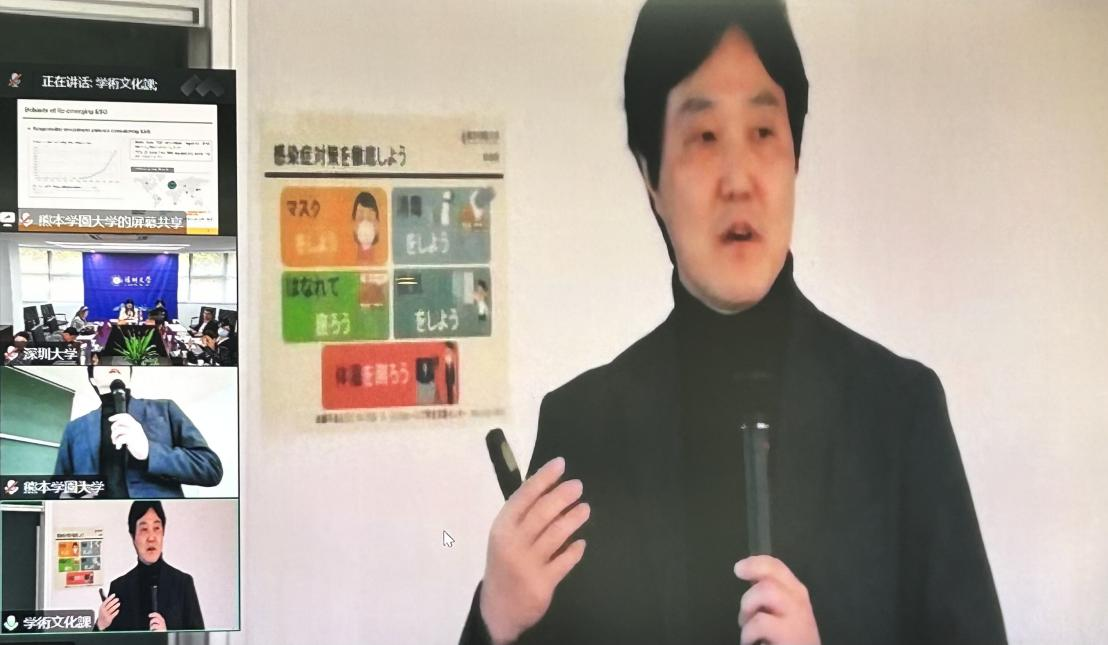
Prof Lee Soo-yeol of CNU Business School
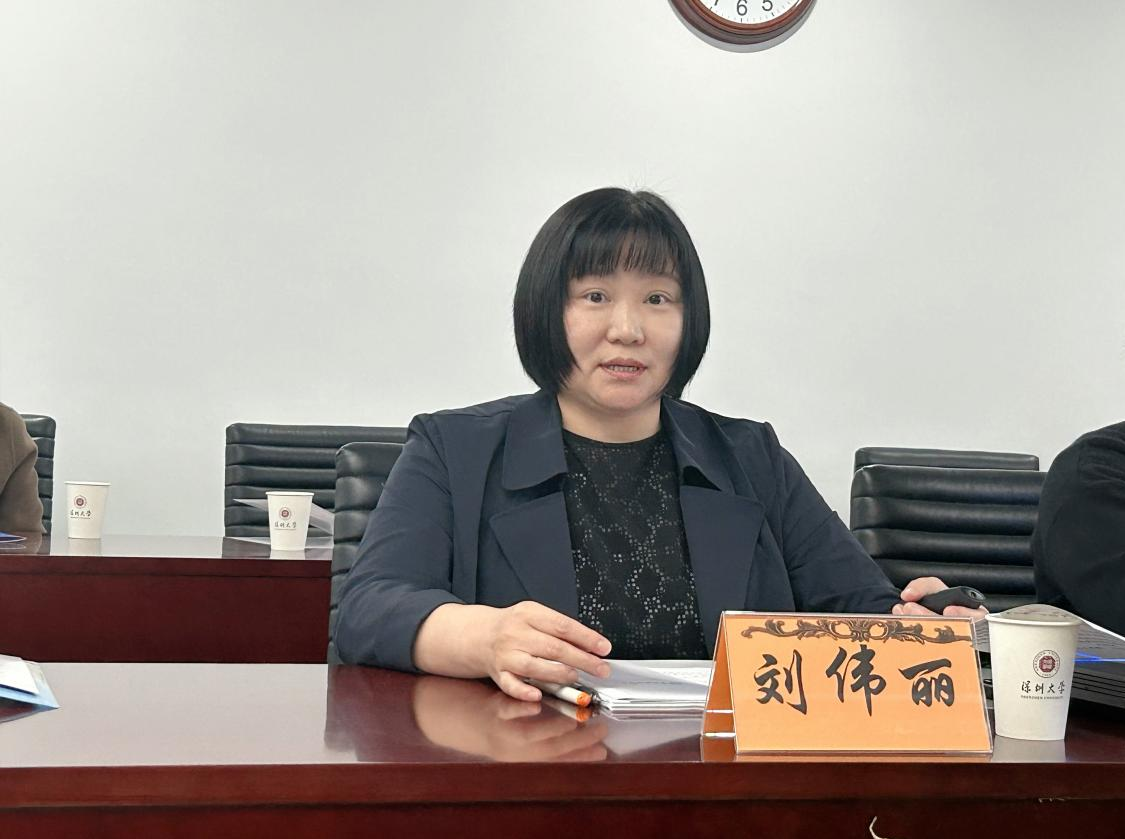
Prof. Liu Weili of CCSEZR, SZU
Prof. Tao Yitao addressed a closing speech on “The Significance and Value of Inclusive Development”. She talked about her understanding of economic globalization, believing that the purpose of inclusive development is common prosperity and development, the essential prerequisite is to protect and respect each other's core interests, and the fundamental is value inclusion and respect cultivation and establishment. Economic globalization will inevitably breed a more open and inclusive world.
Prof. Tao Yitao, Director of CCSEZR and President of BRRI
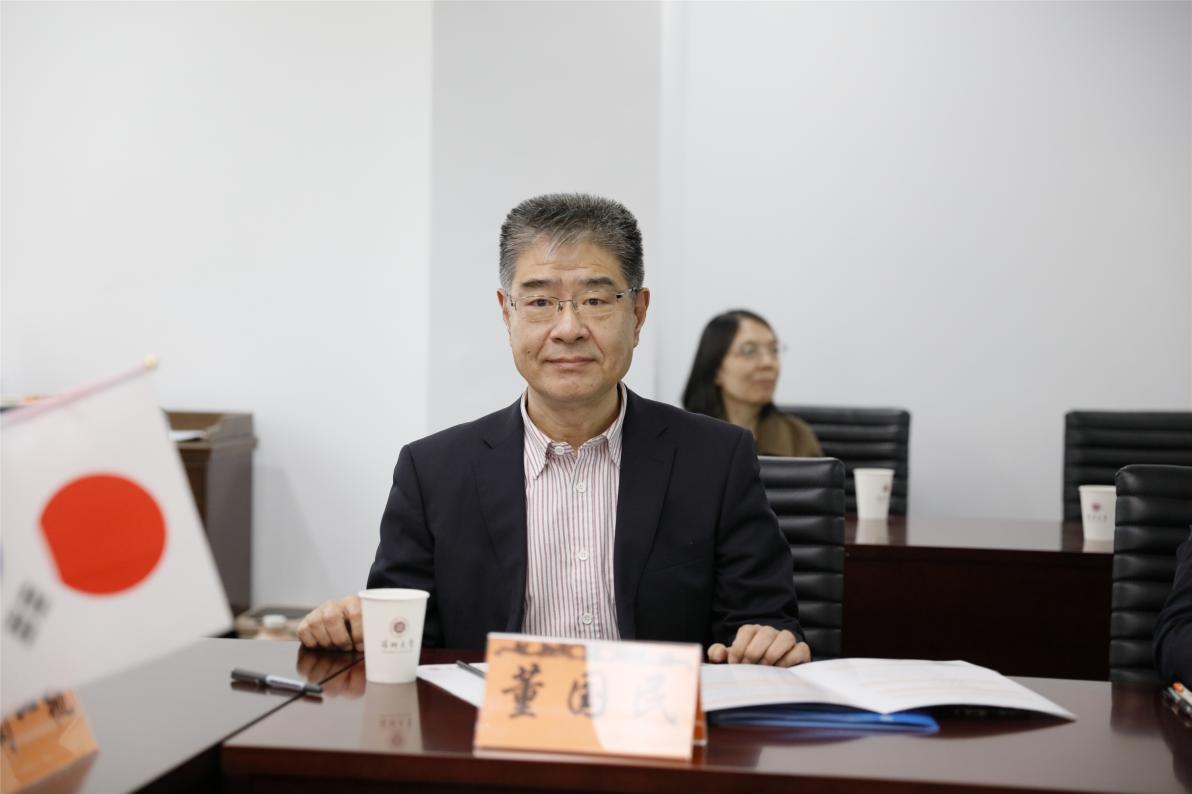
Associate Professor Dong Guomin, Japanese Department, College of International Studies of SZU
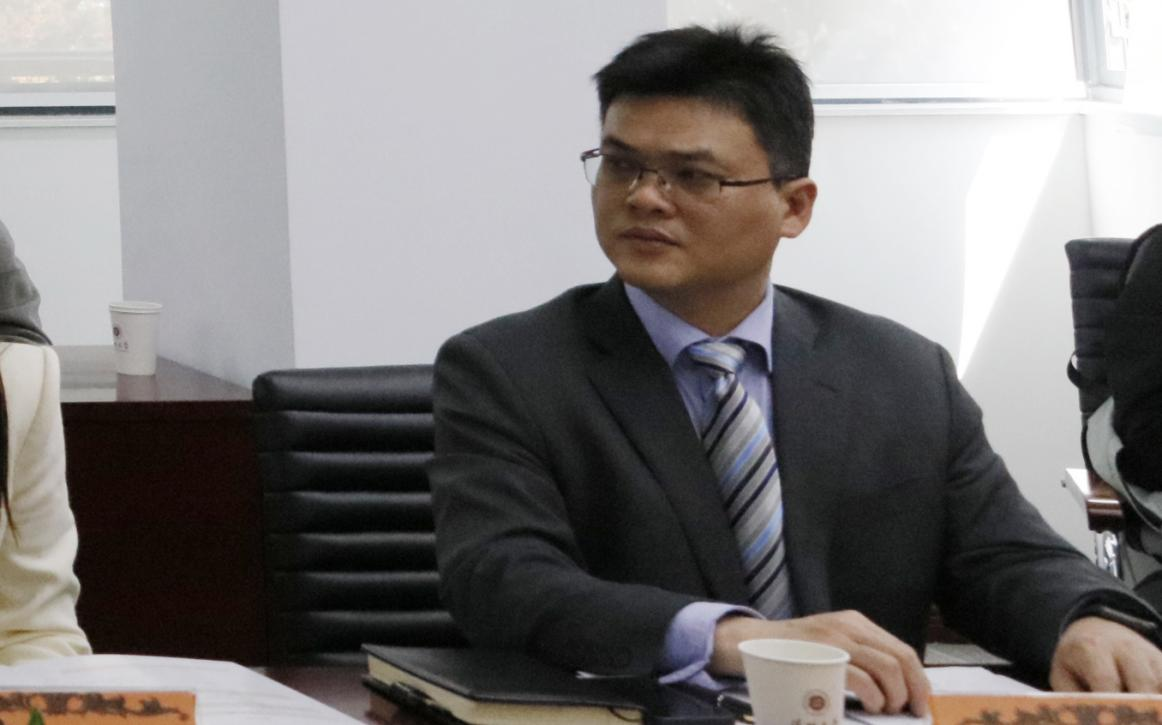
Jiang Jianwu, Deputy Director of Shenzhen University International Office
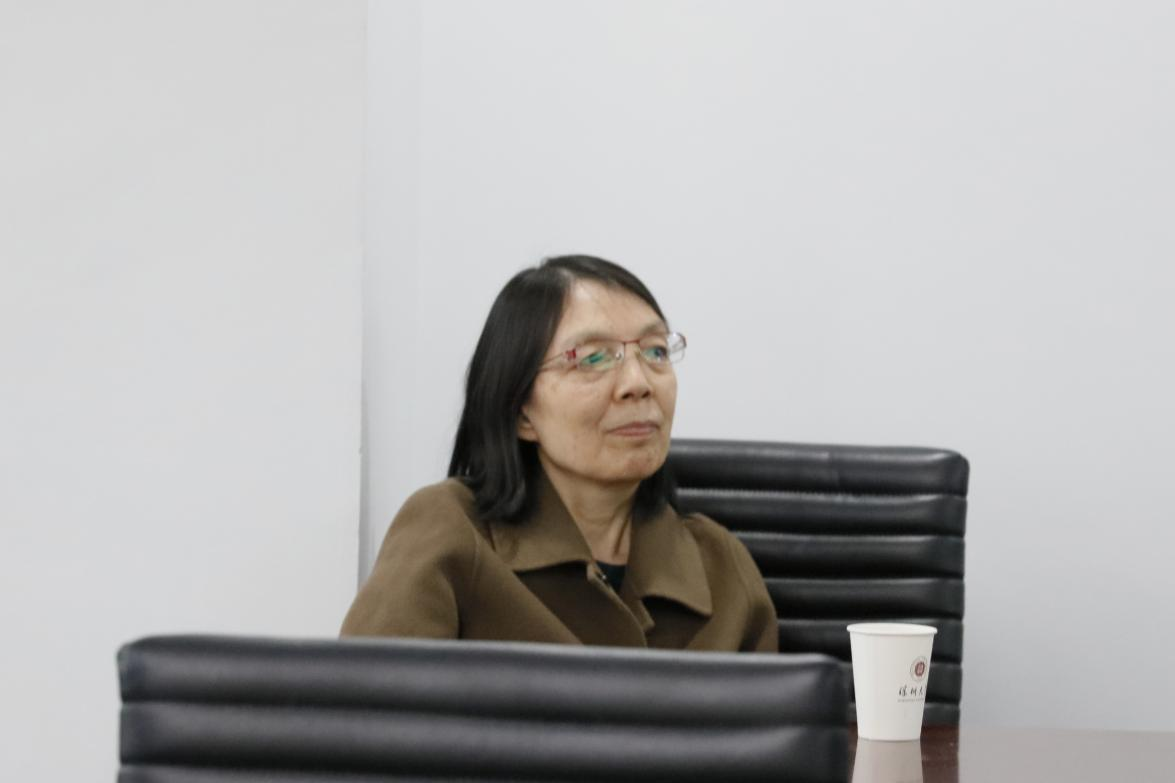
Associate Professor Fan Xiaowen of CCSEZR, SZU
It has been 36 years since the academic exchange and cooperation between the China Center for Shenzhen Economic Zone Research (CCSEZR), a key research base of humanities and social science under the Ministry of Education, and the Institute of Foreign Affairs (IFA) of the Kumamoto Gakuen University (KGU) began in 1987. The year 2023 also marks the 80th anniversary of KGU and the 40th anniversary of SZU. The success of the conference further deepened academic exchanges. The speeches of the participants from SZU were highly evaluated by all, and the meeting was successfully concluded with warm applause.
Correspondent: Wang Yuren
